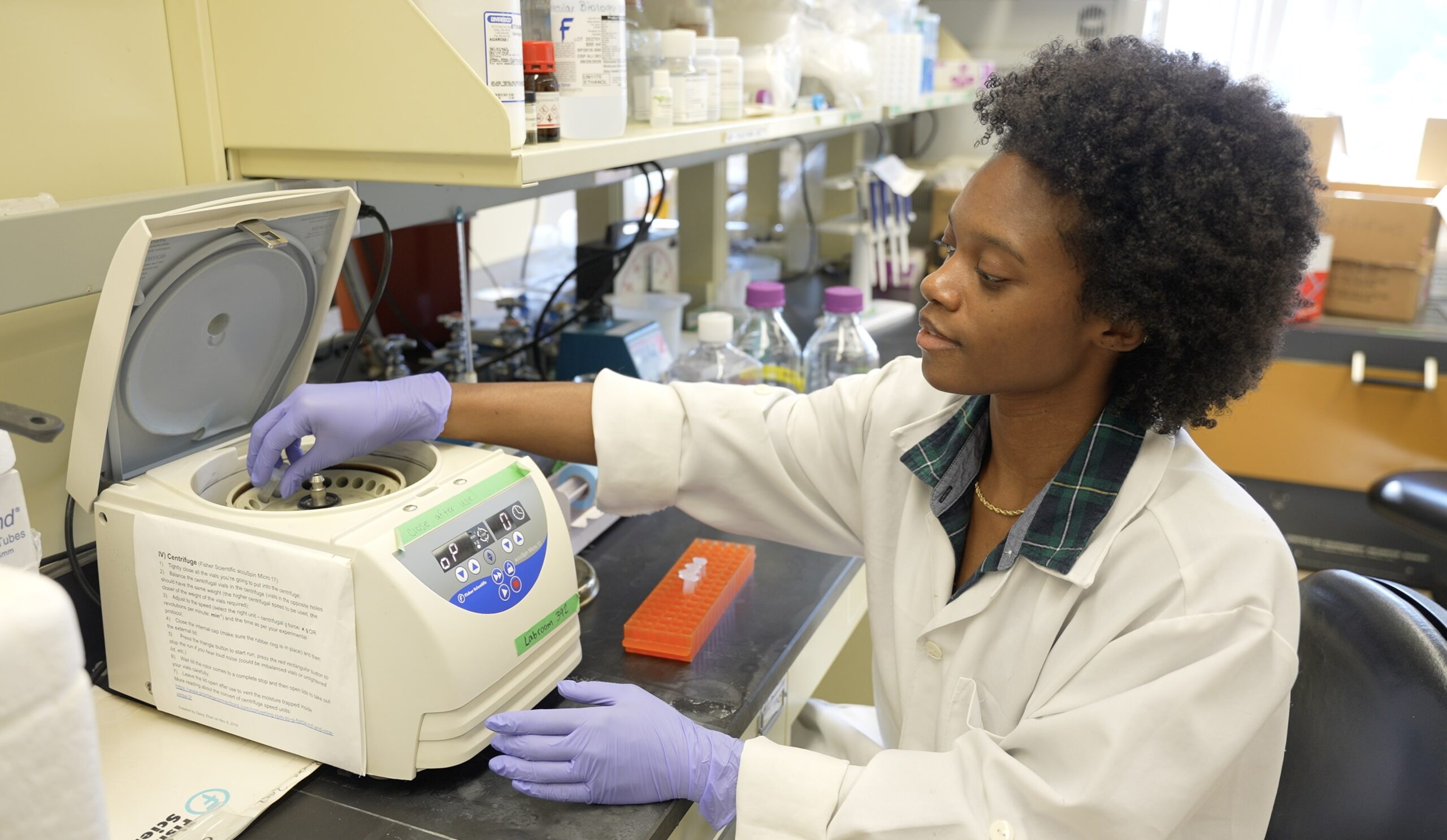
Kirsten Allen, doctoral candidate in the plant biology graduate program at Rutgers, was selected as a 2023 Quad Fellow.
Kirsten Allen, doctoral candidate in Rutgers School of Graduate Studies, was named to the inaugural cohort in the Quad Fellowship program supporting international students in science, technology, engineering and mathematics (STEM).
An initiative of the four governments of Australia, India, Japan and the United States that was announced at a summit of the quad countries in September 2021, it is the first multinational scholarship and educational fellowship program specifically supporting STEM students. Only 25 students from each country were selected to receive the $50,000 scholarship.
Allen, who is in her final year in the plant biology graduate program, was selected from a pool of more than 3,200 applicants competing for sponsorship as one of 100 master’s and doctoral students in the four quad countries who are pursuing science, technology, engineering, and mathematics (STEM) studies in the United States.
Allen, whose graduate research is focused on essential oil biochemistry and metabolism in the catnip plant, is advised by James Simon, Distinguished Professor in the Department of Plant Biology, who leads the New Use Agriculture and Natural Plant Products Program at Rutgers.
She is also a fellow with the Rutgers University Pipeline-Initiative for Maximizing Student Development (RUP-IMSD) program, which is funded by a grant from the National Institutes of Health in an effort to increase the number of students from diverse backgrounds in biomedical research careers.
Allen earned her undergraduate degree in pharmaceutical sciences, with a minor in plant biology and a certificate in international agriculture, from the University of Georgia. She recently sat down with SEBS/NJAES Newsroom to share her reaction to her selection as a Quad Fellow and what this highly competitive and prestigious fellowship means for her career and her personal development.
How did you feel on hearing the news about your selection?
I was elated and overjoyed when I received the news that I’d been awarded the Quad Fellowship. All of the fellows come from such impressive academic backgrounds in a variety of disciplines. I feel honored for the chance to work on projects with my new peers and mentors and I’m excited to see the potential impact our cohort can have on the world.
What does the award mean to you in terms of furthering your education?
Financially the Quad Fellowship will be a wonderful asset for my last year of graduate school and allow me the freedom to focus solely on my dissertation. I’ve been a teaching assistant in the Department of Life Sciences for the past three years and I’ve learned so much from my students and how to effectively engage them in the classroom. I’ll miss teaching next year but I’m looking forward to researching full-time while also working on my thesis and applying for jobs.
An important component of the program focuses on elevating the fellows’ ability to use science and technology for social good.
The program truly seems like a once-in-a-lifetime opportunity to combine my passion for science and social good. I’ve always valued different outlets for experiential learning whether through summer research programs or internships. There’s so much I could potentially learn from this network of science and technology experts pooled together. The fellowship could positively impact my research by showing me the broader applications of my work in the plant sciences and allowing me to discover the added value in working cross-culturally and across disciplines.
How do you see this level of support impacting your personal growth?
The Quad Fellowship will be a great source of support for me, and I can’t wait to meet my fellow cohort members and our mentors. On a personal level I hope to improve my intercultural competence, broaden my worldview, and make connections with industry and policy leaders from the Quad countries. As a member of the U.S. Quad cohort, I would like to learn how to use my Ph.D. and the skills I’ve gained in academia as a public servant in support of health and women’s rights, environmental and education issues while also improving my scientific communication and problem-solving skills.
What are some of your goals and plans for the future?
After completing my Ph.D., I would like to work in the personal care and wellness industry pursuing a role within plant metabolomics and natural product chemistry or sourcing sustainable raw materials such as essential oils for flavor, fragrance, dietary supplement, and beauty products. Being a plant scientist in the personal care industry will give me a unique advantage in understanding the manufacturing process for raw plant materials. I would love to join, and ultimately lead, a Research & Development team that attempts to identify new botanicals that can be utilized in novel products. I would also enjoy a position that would enable me to directly work with farmers to ensure supply chain traceability and sustainable procurement and collection practices for medicinal plants.

